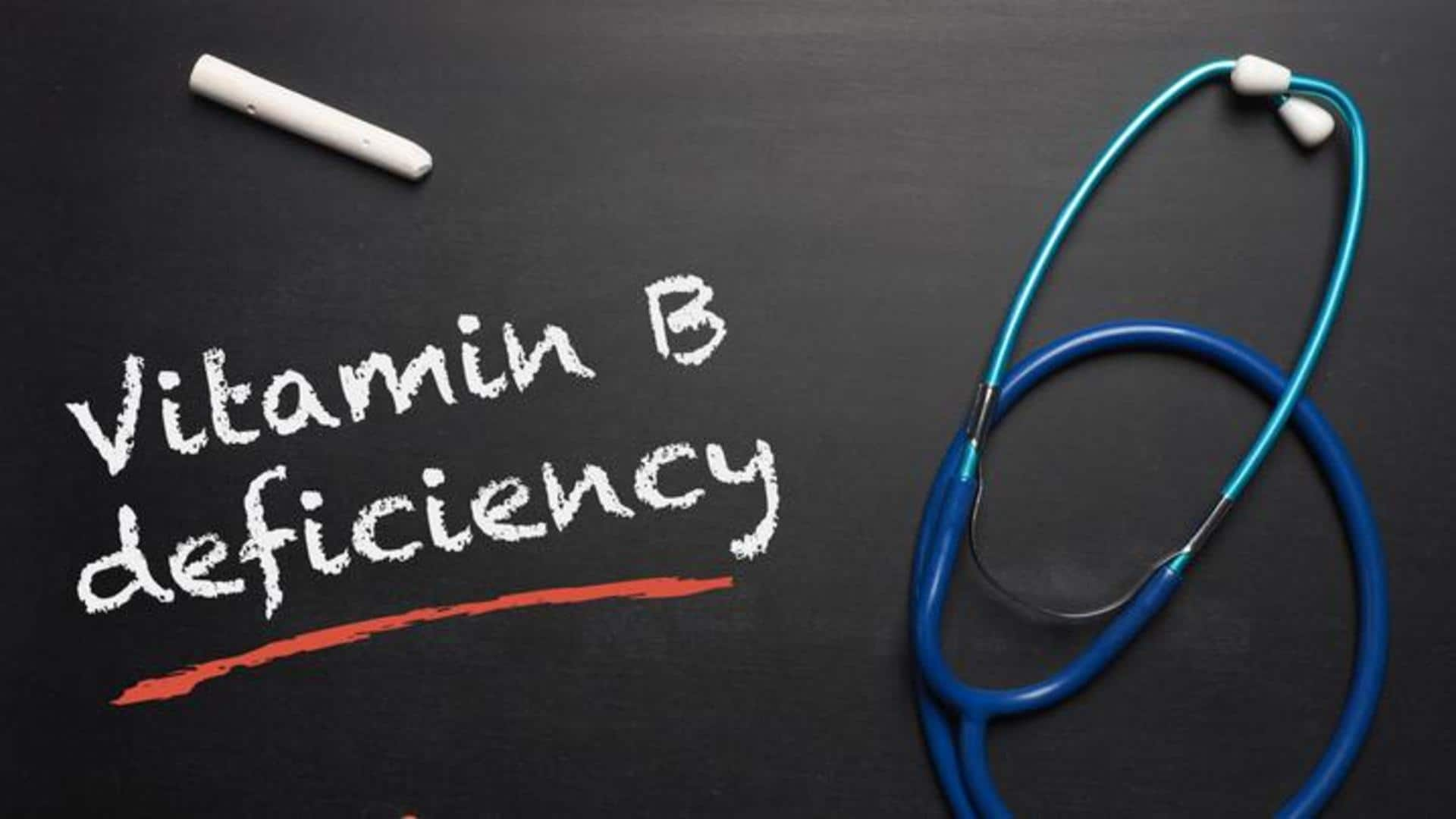
Know about vitamin B deficiency: Causes, symptoms, and treatment
What's the story
B vitamins include eight essential nutrients that have unique roles to play in our overall health and wellness.
The different types of vitamin B are water soluble and cannot be stored in the body, so you need to consume them regularly to prevent deficiency.
Vitamin B deficiency can lead to different health issues including fatigue, weakness, depression, dementia, and difficulty in keeping balance.
Definition
What is vitamin B deficiency?
Vitamin B deficiency in your body occurs when you do not include vitamin B-rich food in your diet or suffer from a certain health condition.
Vitamin B improves your nerve health, drives chemical reactions in your body, and helps in DNA production.
There are eight kinds of vitamins in vitamin B including riboflavin, thiamine, pantothenic acid, pyridoxine B6, niacin, cobalamin, biotin, and folate.
Symptoms
Symptoms of vitamin B deficiency
A deficiency in vitamin B can affect the functions of your circulatory and nervous systems if not treated early.
It can also cause megaloblastic anemia, dementia, depression, paranoia, and other behavioral changes in later stages.
The most common symptoms of the condition include tiredness, weakness, loss of appetite, weight loss, constipation, balance problems, confusion, poor memory, and soreness in the tough or mouth.
Causes
Causes of vitamin B deficiency
You are more likely to suffer from vitamin B deficiency if you have atrophic gastritis in which your stomach lining gets thinned.
It can also occur if you suffer from pernicious anemia and other conditions that affect your small intestine like bacterial growth, parasite, celiac disease, and Crohn's disease.
Drinking excessive alcohol or experiencing a swollen and inflamed tongue can also trigger the deficiency.
Foods
Foods that you must include in your diet
Vitamin B is usually found in dairy products and meat. If you are following a vegan diet, you are at a higher risk of getting a vitamin B deficiency.
You must include foods like eggs, cheese, milk, fortified breakfast cereals, fish, meat, seafood, leafy greens, legumes, nutritional yeast, and seeds in your diet to prevent this vitamin shortage in your system.
Treatment
How is it diagnosed and treated?
Vitamin B deficiency can be diagnosed after doing a complete blood count test. If the amount of vitamin B in the blood is less than 150 per milliliter, then the individual is suffering from vitamin B deficiency.
While including vitamin-B-rich food in the diet can help, your healthcare provider can also suggest intramuscular injections, oral medications, nasal spray, and nasal gel for treatment.